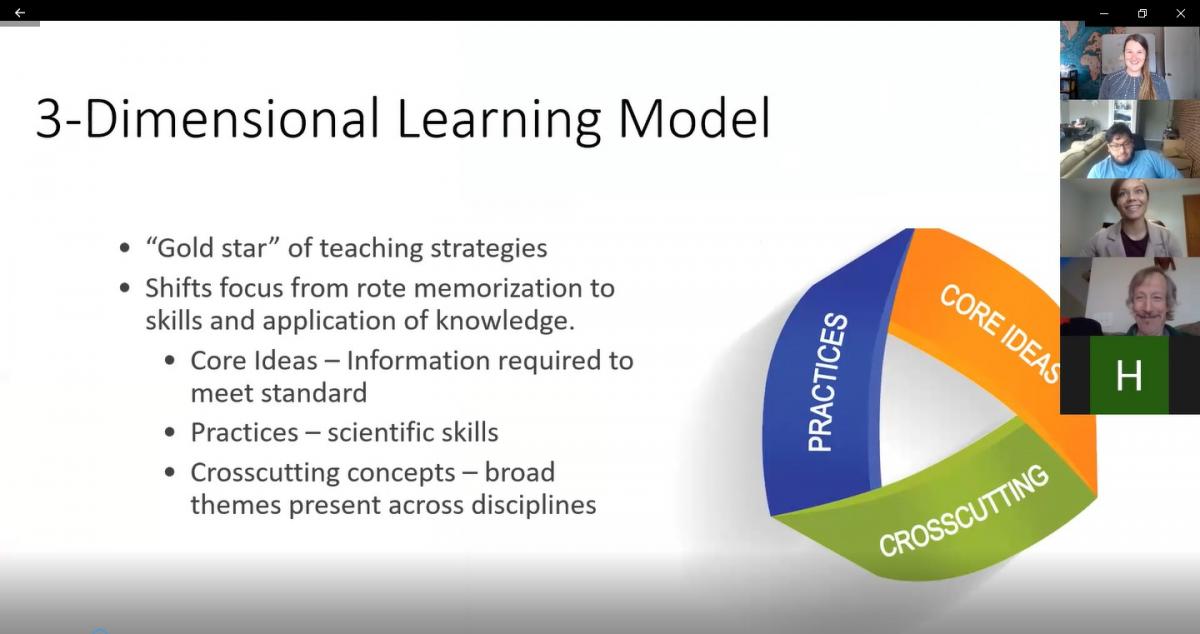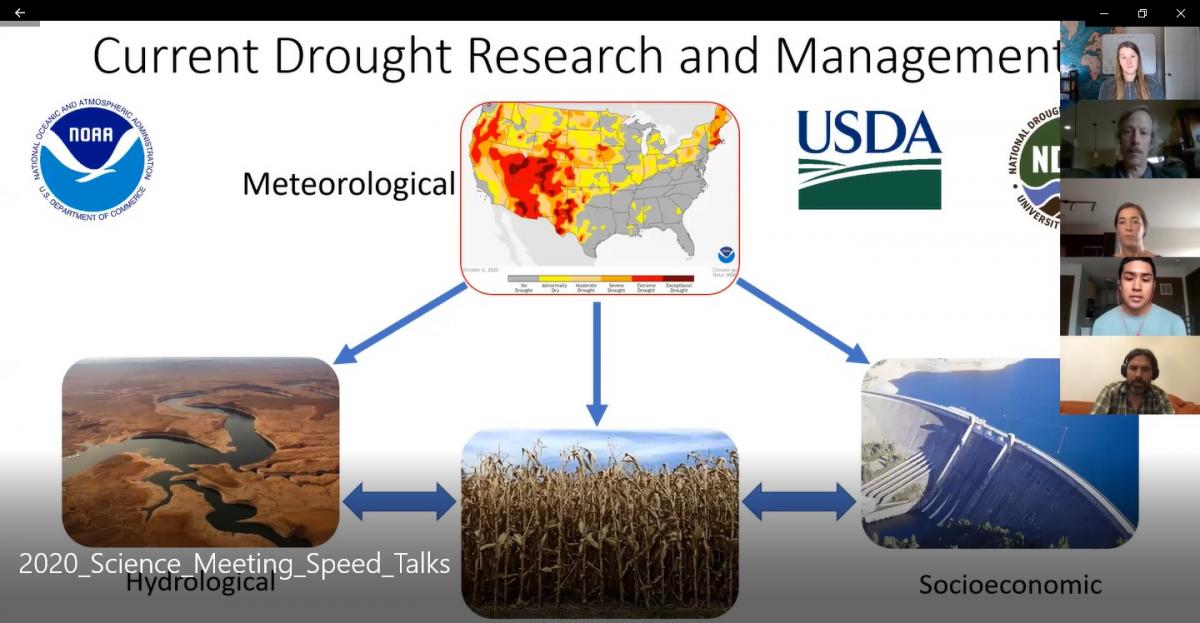The 10 NRT students taking the “Foundations of Ecological Resilience” course in the fall did some fast talking at the International Science Meeting of the Resilience Alliance on October 20, 2020, all rising to the challenge of explaining their graduate research within five minutes.
The “speed talks” focused on explaining current ecological resilience research to the 47 attendees of the virtual meeting hosted by the Resilience Alliance, an international organization dedicated to exploring research on social-ecological systems.
“The broad range of diversity of approaches and disciplines involved, and the professionalism displayed by our students, reflected well on our program and the University of Nebraska,” Craig Allen, director of the Nebraska NRT, said about the talks. “I received unsolicited praise for our students’ performance from members of the audience, which were primarily from the United States, Canada and Sweden.”
NRT doctoral student Breanne Lewis-Jones presented on how to use three-dimensional education models to effectively teach resilience concepts in secondary classrooms. Lewis-Jones has taught science in public schools, but the speed talks were a new experience for her.

“The speed talk is a really interesting way to present information,” she said. “It forces you to cut down some really complex topics and try to get to the core of what you’re speaking about. This is a really good way to share information with those in different disciplines. You can cut out a lot of the technical theory and focus on the meat of your work.”
Master’s student Alexis Chavez, who spoke about identifying human drivers of droughts, said the experience benefited him.
“Getting prepared for it pushed me to think about what I want to do for my thesis, and I also learned more about the concepts of resilience,” he said. “The speed talks of other students were also interesting since I realized how resiliency could be applied across many research areas.”

Lewis-Jones agreed she found other students’ talks interesting.
“It was great to hear about all of the exciting research that is being conducted in the realm of resilience,” she said.
Chavez said he expects the experience will continue to benefit him.
“If I give similar short talks in the future, I now hope to use yesterday’s experience as an example of how I should prepare for one,” he said.
Michigan State University graduate students taking a resilience course taught by Jennifer Hodbod, professor in the Department of Community Sustainability there, also delivered speed talks at the meeting.
— Ronica Stromberg, National Research Traineeship Program Coordinator


